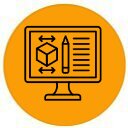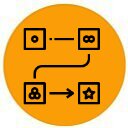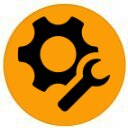
Production management software comes with production scheduling features for real-time sales and inventory data tracking — ensuring all your teams are on the same page and have total inventory control. Production management software allows you to track and monitor inputs and materials required and reduce human error ultimately helping you detect flaws early in production, making it easy to stay in stock and keep your customers and team happy. The transformation of raw resources into completed items or products is the focus of production management. Making decisions about quality, quantity, cost, and other factors is another concern of production management.
We at covenant Technologies, proffer cloud-based production management software as a computerized system used to optimize the production line with automated and data-driven manufacturing processes. This software is used to track production data, such as Bill of Material, production scheduling, production forecasting, strategy, and production costs. Production management means planning, organizing, directing and controlling of production activities. We provide a set of general principles for production economies, facility design, job design, schedule design, quality control, inventory control, work study and cost and budgetary control.
Production management is the process of controlling a company's operations so that the outputs of desired goods and services are produced. It entails organizing, carrying out, and managing processes that transform raw materials into final products and services. In order to develop or generate finished products, product management is therefore concerned with acquiring resources in the form of management inputs, raw materials, labor, and capital, as well as equipment and other such items.
The scope of production management is indeed vast. Commencing with the selection of location, production management covers such activities as acquisition of land, constructing building, procuring and installing machinery, purchasing and storing raw materials and converting them into saleable products. Added to the above are other related topics such as quality management, maintenance management, production planning and control, methods improvement and work simplification and other related areas. Its fundamental goal is to produce products and services in the right quantity, quality, on a schedule, and for optimum money. Production management makes it simple to adopt various technologies and innovative changes in the workplace of supervising and controlling all employees involved in the company’s production processes in order to ensure that the target output is achieved.
Key features of a Production Management Software
However, as production organizations in the form of factories developed and grew, more complex issues such as location and layout, inventory control, quality control, routing and scheduling of the manufacturing process, etc., emerged. Let's talk about the characteristics of production management.








Assortment of Product and Design
Production management aids in the selection of the appropriate product for production as well as the appropriate design for the product. It becomes crucial for businesses to have a thorough grasp of their customers in order to develop goods that completely meet needs. To satisfy client expectations and still be cost-effective, products must undergo a thorough assessment.

Production Planning and Control

It also becomes crucial to select the appropriate production procedures for a given product. Making decisions about the best kind of machinery and technology, the necessary capital expenditure, and other issues is necessary. Prior to production, planning is required. The quantity of production, the order of the operations, and other choices are all planned. The process of mapping out the steps necessary for a seamless workflow is known as routing.
The actual procedure is compared and contrasted with the established blueprint in order to map out all essential deviations from the original plan and to identify and fix any flaws. Scheduling is used to establish standards for when to begin and when to finish a specific production activity. Additionally, inventory management and cost control must be addressed. The production schedule is the distribution of resources like labor, materials, and other activities.
Machine Maintenance and Replacement
Production management takes care of the maintenance and replacement of machines and equipment to ensure the efficient and smooth working of production processes. This is taken care of by the production manager and the team to prevent speed breaks and halts in production.
To extend the life and minimize downtime, schedule maintenance and monitor asset utilization. Keep an eye on cycle time and variations, as well as machine utilization. Receive notifications when a machine goes down and keep a close eye on switchovers.

Bill of Material & Routings
As a multi-level bill of materials/routing that displays from the engineering and financial perspectives. Inventory planning and management, cost control, and production processes are all effectively managed by the product structure. The parts and assemblies necessary to make a product are listed in a bill of materials. Not only do production requirements get created in this module, but it also serves as the foundation for all modules' planning features.
One basic belief of production management is the ability to create material bills of manufacturing or assembly routings. We process plans provide the flexibility you need to defines the steps required to produce or assemble an item and manage the impact on costs when changes need to be made, enabling true production management and control.

Production Orders

The production order specifies what will be produced, how much will be produced, and when it will be completed. It also includes details on the materials to use and the procedures to follow in order to make the item. The steps of the production life cycle are traversed by a production order.
Production orders are used to manage production. The quantity and due dates of the commodities being manufactured are specified in these orders. Production order control links the shop floor with the production teams. This module enables real production management and control by automating the generation of production orders, collecting and reviewing expenses, confirming schedule status, and planning and monitoring client delivery dates.
Data Collection and Shop Floor Tracking

Gathering data from the shop floor allows managers to maintain production on schedule to fulfill deadlines and provides a full production history. Time, materials, direct purchase orders, and subcontract service transactions may all be recorded, tracked, and adjusted quickly and effectively. Real-time views of all job components are available from a PC or a mobile device using simple data collection tools for effective production management. Lack of facilities to manage external processes makes production management software insufficient. With the help of our software, you can manage subcontracts from a single location and be always aware of the location of each component, the deadline for taking action, and the estimated cost of the job.
Product Inventory Control
A production system in production management connects with the inventory functions, to track and manage inventory movements. This guarantees that the group has all the materials needed to create final goods. To uphold the company's reputation and guarantee client pleasure, it offers quality monitoring and control throughout production. Managing production processes so that costs are under control and profits are maximized is a key component of a management production system.
Based on customer orders and the resources that are available, the system develops production schedules and plans. We give operators the option to log production data on mobile devices for real-time monitoring. To satisfy market demands, balance your investment in labor, equipment, and materials. You can supply goods on schedule, in accordance with specifications, and within budget projections thanks to the Production Management Software module's seamless connection with our other modules.

Reporting and Analytics

The system should provide accurate reporting and analytics tools to help managers make informed decisions about production. Obtain complete order visibility. Track orders as they go through the factory floor by integrating with cloud-based production management tools. Provide Real-time production quality records and keep a close eye on the materials and procedures.
In production management, you must compare the expenses of each manufactured item to the original plan by analyzing material bills, routers, direct purchase orders, and subcontract prices. Revalue your inventory after you have a thorough understanding of the costs involved in manufacturing your products. Reports and analytics provide a strong emphasis on fusing business analysis, data analysis, and process design expertise to optimize your processes while increasing productivity and lowering costs. Additionally, it makes it easier to make better data-driven decisions for the effective day-to-day management of your organization.
The Benefits of a Production Management Software
Production management software facilitates your industry to ultimately bring in profit to the business by controlling all aspects of product production activities such as production order & report, order status, performance evaluation of past & future production status in documented way. The following are some noteworthy benefits of production management software,
 Automatic Scheduling & Adaptive Schedules
Automatic Scheduling & Adaptive Schedules
 Automates routine tasks, improving cross-functional collaboration.
Automates routine tasks, improving cross-functional collaboration.
 Effortless project planning
Effortless project planning
 Balanced resource management
Balanced resource management
 Real-time product budget management
Real-time product budget management
 Solid up-to-the-minute reporting
Solid up-to-the-minute reporting
 Easy Growth Control and Stimulation
Easy Growth Control and Stimulation
 Easy review of data
Easy review of data
 Enhancing Sales and Profitability
Enhancing Sales and Profitability
 Provides real-time production analytics and drives growth and scalability for a business.
Provides real-time production analytics and drives growth and scalability for a business.
 Enhances the delivery quality and cost management.
Enhances the delivery quality and cost management.
 Improved decision-making.
Improved decision-making.
 Elimination of duplicate orders and unnecessary execution tasks.
Elimination of duplicate orders and unnecessary execution tasks.
 Better contribute to organizational growth.
Better contribute to organizational growth.
 Improve internal integration and manage complex production priorities.
Improve internal integration and manage complex production priorities.
 Identifies errors and increases customer satisfaction.
Identifies errors and increases customer satisfaction.

Product management is, in general, an essential component of any firm. In addition to making sure that products are produced to match client expectations, delivered on schedule, and within budget, it also enables firms to sell their goods successfully and make ongoing product improvements.